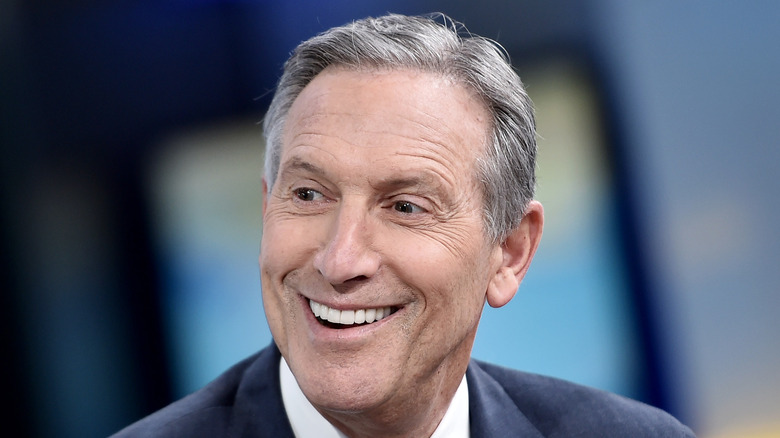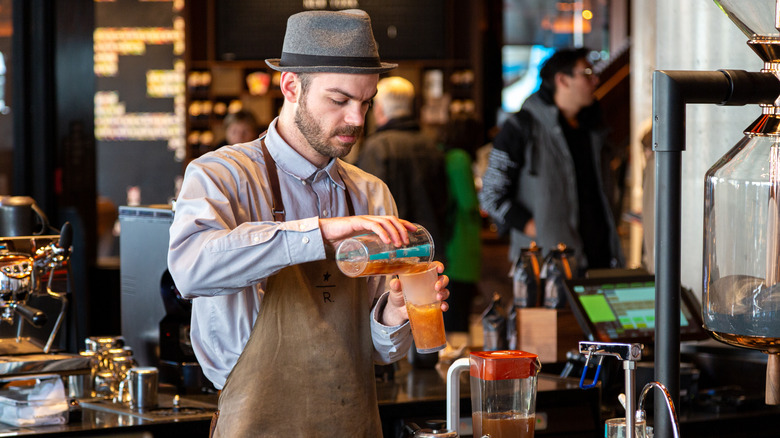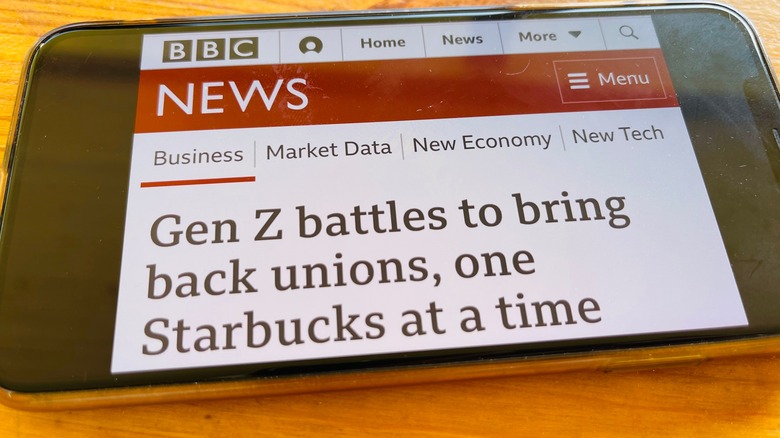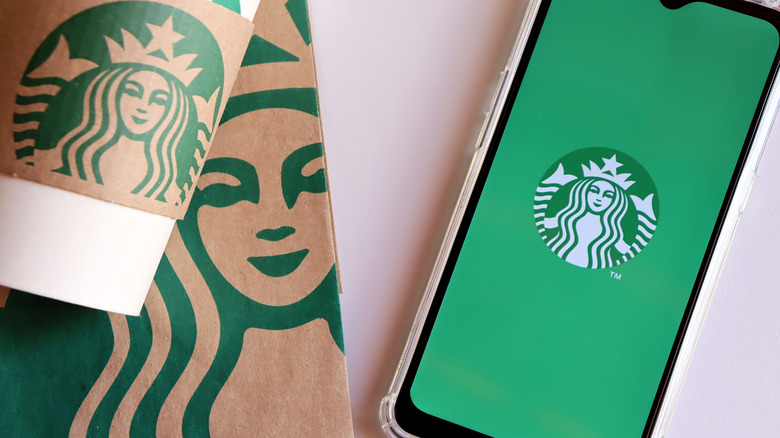Starbucks' Interim CEO Howard Schultz Is Already Making Changes
Howard Schultz, Starbucks' veteran CEO, has ties to the company that run so deep that he can recall what Starbucks was like decades ago — before it became the global brand the world knows and loves. "The original Starbucks store was a modest place," Schultz notes in his autobiography. "Behind a worn wooden counter stood bins containing coffees from all over the world: Sumatra, Kenya, Ethiopia, Costa Rica. Remember, this was a time when most people thought coffee came from a can, not a bean."
According to CNN, Schultz first joined Starbucks as director of retail operations and marketing but left because he felt the company was heading in the wrong direction. Two years later, he was back to buy the company's six stores. And by 1992, eleven years after he was initially hired as head of retail operations, Schultz had opened 165 stores and was able to take Starbucks public.
Schultz is suspending the company's stock buyback and dividend plan
Schultz's devotion and belief in Starbucks likely explain why he has led the company as CEO twice in the past and returned a third time as interim CEO. And while he might have only assumed the post on April 4, Schultz didn't waste time suspending a planned dividend and stock buyback operation worth $20 billion, which was announced in October of 2021.
Shultz released his first letter to employees on the Starbucks site, outlining his vision and priorities, saying: "Starting immediately, we are suspending our share repurchasing program. This decision will allow us to invest more profit into our people and our stores — the only way to create long-term value for all stakeholders."
That share repurchasing plan was made public after quarterly earnings had failed to meet analyst expectations. Bloomberg says lagging sales had plagued the coffeehouse since the pandemic began, causing the industry to miss revenue estimates and making investors wonder whether its stock was still a good buy.
Starbucks today is not the company that Schultz had left it
Schultz didn't decide to change course on a whim. During his terms as CEO, NPR credits the Starbucks visionary as the driving force behind the company's growth. He is also the reason the company became known for its generous employee benefits program, which provided full-time and part-time staff with everything from health care to stock options and free college.
But today, Starbucks is a hotbed of grievances. Its employees are banging the drum to join unions, calling for higher wages, asking for changes to the scheduling system, and questioning policies, including hazard pay and daily food and drink allowances. On the business front, Schultz admitted that the company was facing "new realities in a changed world." He said these include: "Pinched supply chains, the decimation caused by COVID, heightened tensions and political unrest, a racial reckoning and a rising generation which seeks a new accountability for business."
His decision to suspend the buyback signals a pivot in Starbucks' policy, and analysts tell Reuters it's a signal that he wants to take the company's cash and invest it in employees. Ivan Feinseth, chief investment officer of Tigress Financial Partners, says: "You have to take the opportunity to invest money where it will get the best return on multiple levels — both as a direct investment and to show what the company's current focus is."
Not everyone is excited to see Schultz's return
Predictably, some aren't as excited to see Schultz return. Reuters reports that the interim CEO does not believe unions belong at the company. He's even written about his beliefs in his book. He writes, "I was convinced that under my leadership, employees would come to realize that I would listen to their concerns. If they had faith in me and my motives, they wouldn't need a union."
Anxious members of Starbucks Workers United have already reacted negatively to both Schultz and his plans, telling Barrons in an email that "Howard Schultz is launching an elaborate campaign to try to prevent us from organizing, and is taking a good cop/bad cop approach. On the one hand, he is offering to divert more of the company's wealth to partners from the shareholders and says that he wants to listen. On the other hand, he is directing a ruthless and vicious anti-union campaign across the country that is filled with threats, firings, misinformation, and slashing of our hours."
But Schultz appears undeterred. In a letter to employees addressing the future of Starbucks, Schultz wrote, "My first work is to spend lots of time with partners. To lift up voices. To see everything that is already in play to help us become this kind of company. To invent. To face challenges — and for us each to be transparent with one another and become accountable for building the future of our company."



